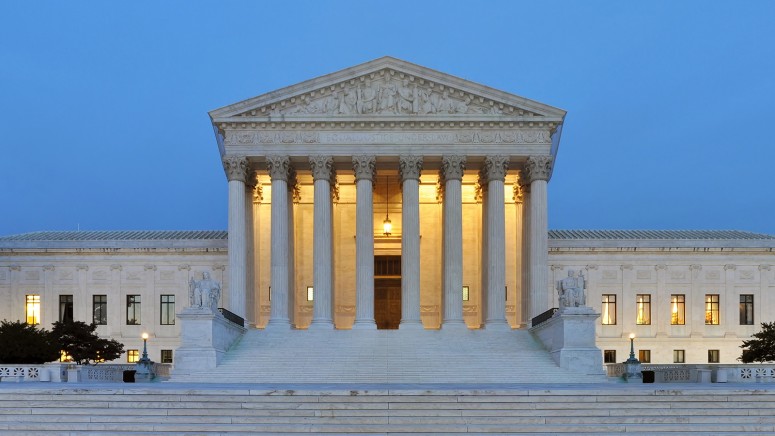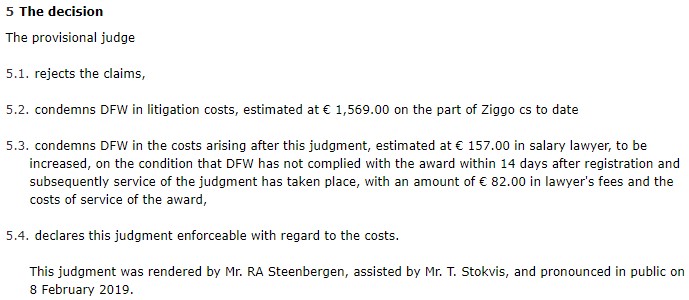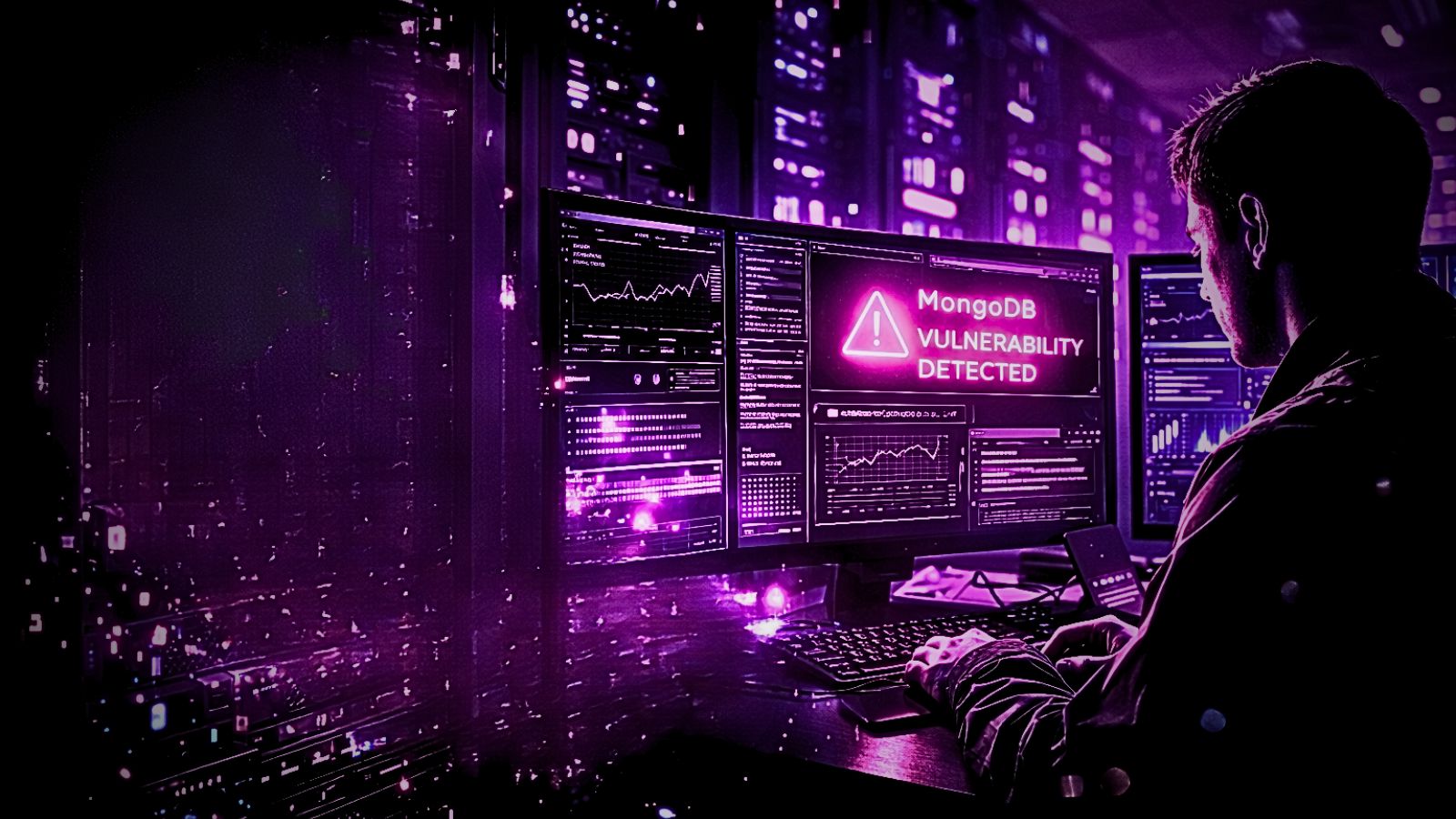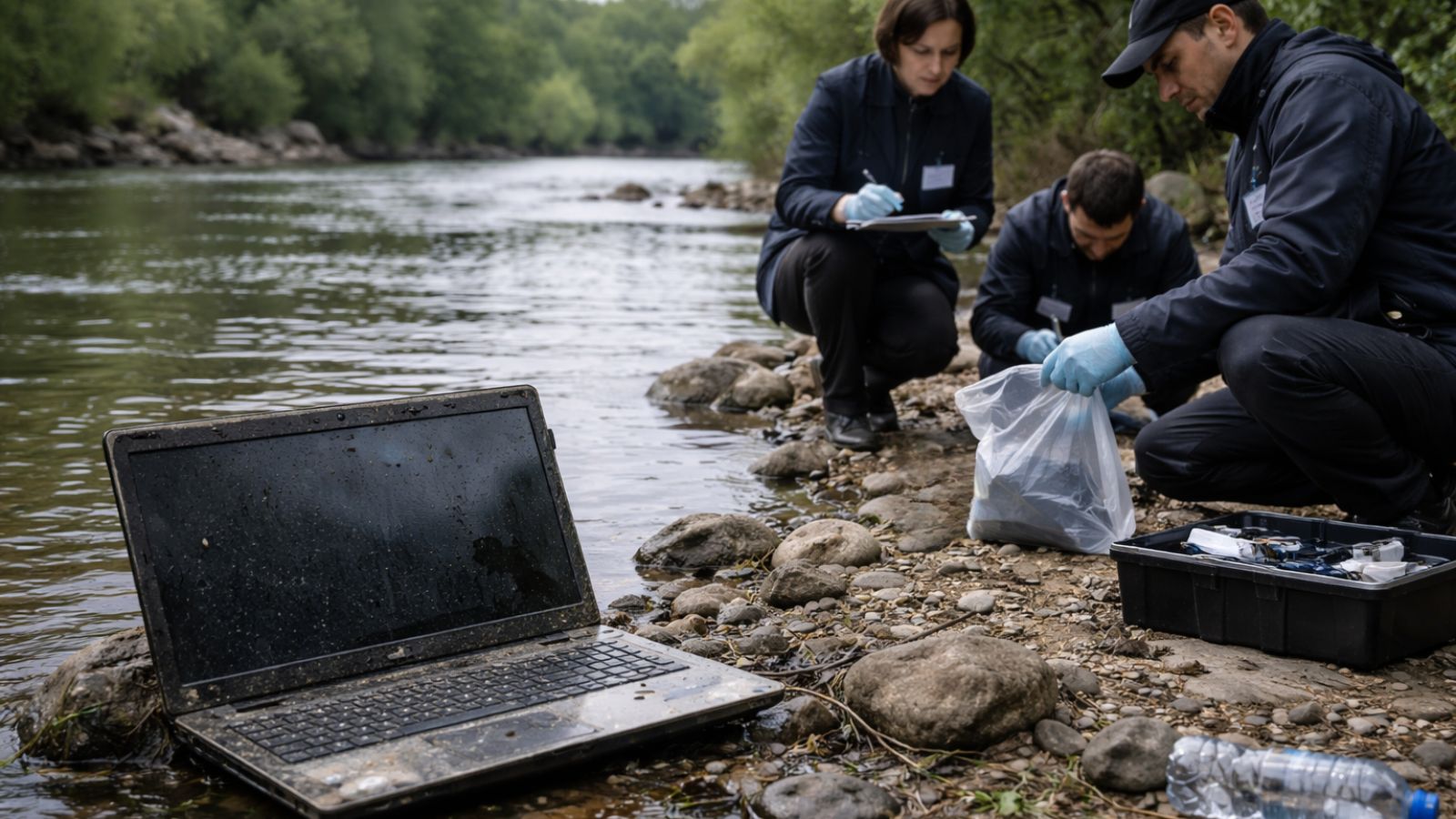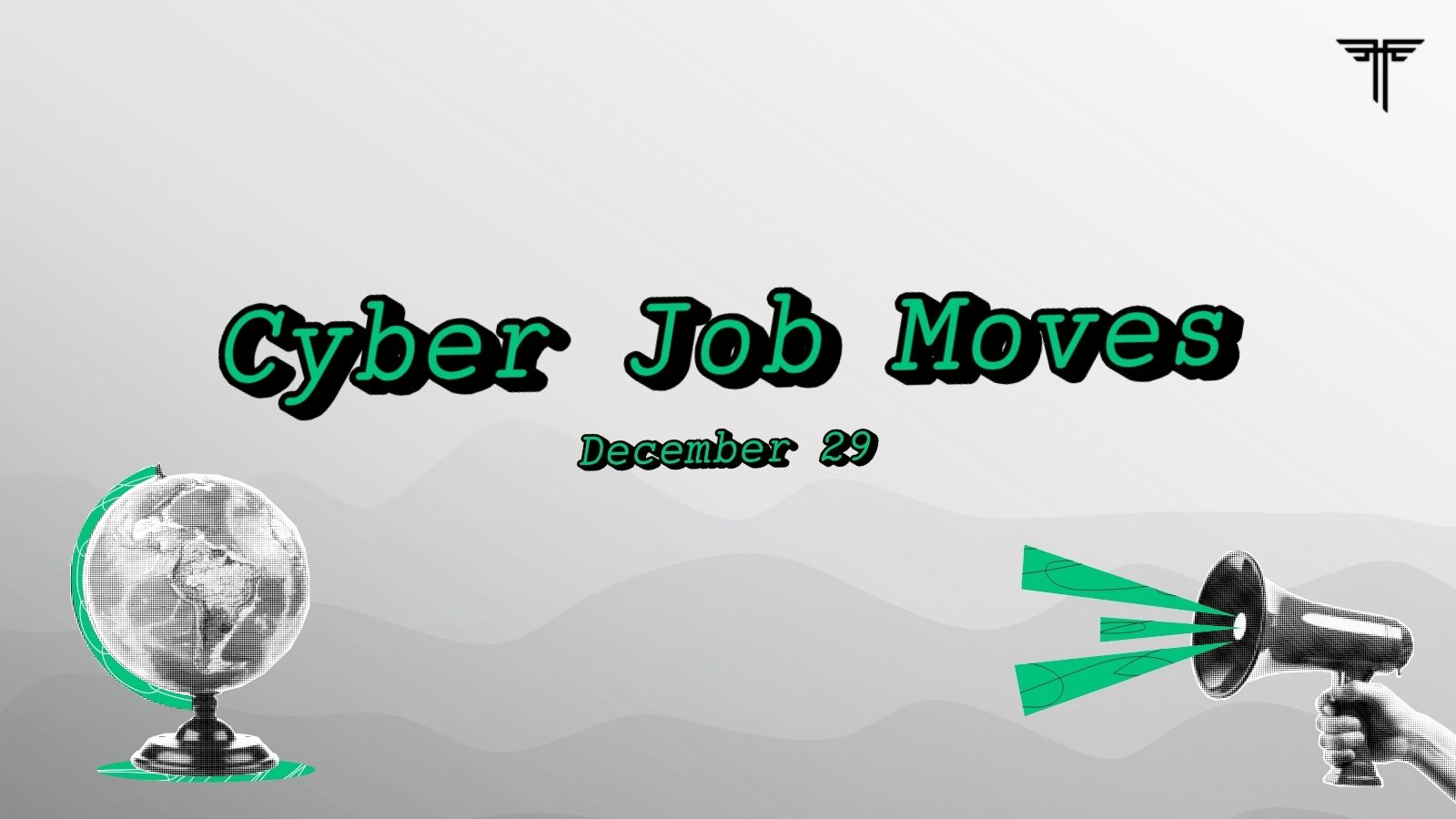
Dutch Court Rules in Favor of ISP and the Protection of Customer Anonymity
- The Central Netherlands court has rejected a request for customer identity from DFW to Ziggo.
- The prosecutor will now have to pay for the litigation expenses of the ISP and reconsider their piracy targeting approach.
- This verdict follows the reasoning of US courts that do not accept the unquestionable linking between the infringer and the IP address.
A ruling that was issued yesterday by the Central Netherlands court exempts Ziggo ISP (Internet Service Provider) from having to hand over the identities of 377 of their customers to Dutch FilmWorks (DFW). The latter has turned to the court to get an order that would compel the former to share the requested information, on the basis that their customers have been involved in pirating activities. However, the court decided that Ziggo doesn’t have to disclose anything since IP addresses are not necessarily linking to the persons who committed the wrongdoing of downloading copyright-protected content.
This decision is in line with the approach that US courts have been following since last summer, and it makes perfect sense in terms of the legal and practical context. However, we rarely have the opportunity to see a court decide upon this matter, as most of the ISPs that receive customer identity information requests by copyright holders and protection groups are handing them over voluntarily. Ziggo is not one of them, as they believe in the importance of preserving customer anonymity, no matter what the allegations made against them are. This defensive stance has paid off, and the court has even decided to condemn DFW to pay the litigation costs of Ziggo, including the court fee (€639) and the lawyer’s salary (€930).
source: uitspraken.rechtspraak.nl
The court justifies the above decision by explaining that DFW did not make it sufficiently clear how they are planning to use the name and address data of the 377 Ziggo customers, and neither did they clarify how the actual downloader of a film is concretely connected to the IP address, and thus how they will prove that the account holder is the infringer. The court has even disputed the DFW settlement proposal that is €150 for each illegal download, querying whether this amount is actually in correspondence to the damage done.
A spokesman from the Dutch Filmworks has made the following statement on the verdict: “Our management is almost entirely in Berlin for a film festival, and we will come up with a substantive response next week when we have also spoken to our lawyers.” In the same time, Ziggo is satisfied with the court decision, and BitTorrent users in the Netherlands are hoping that this will set the scene for copyright holders to refrain from targeting casual downloaders in the future.
Do you believe this is the last time that we see a copyright holder trying to get their hands to the identities of BitTorrent users, or was this court decision just a stumble in their steady march towards ending piracy? Let us know of your thoughts in the comments below, and feel free to do the same on our socials, on Facebook and Twitter.
